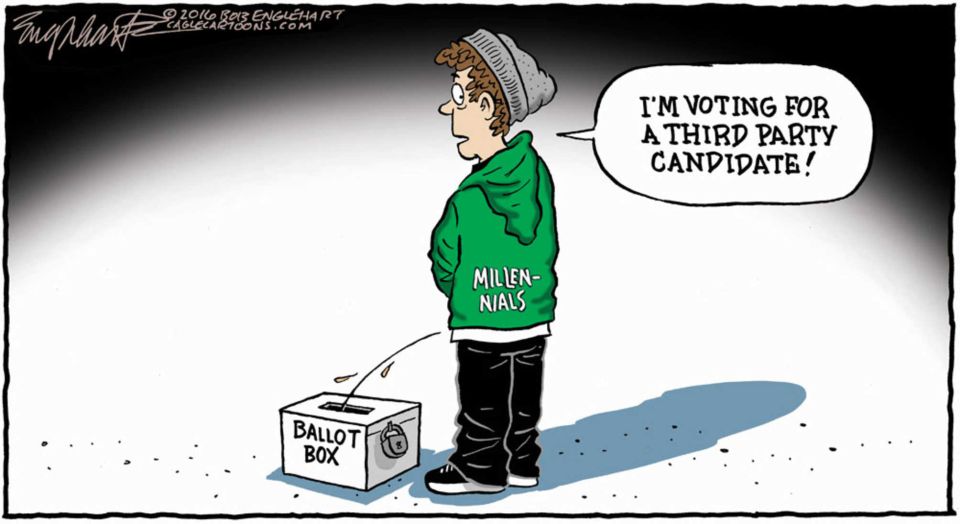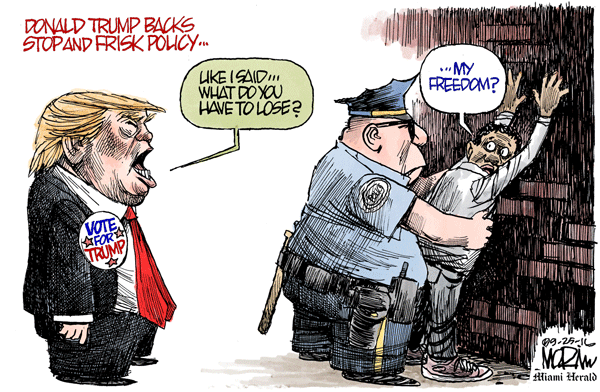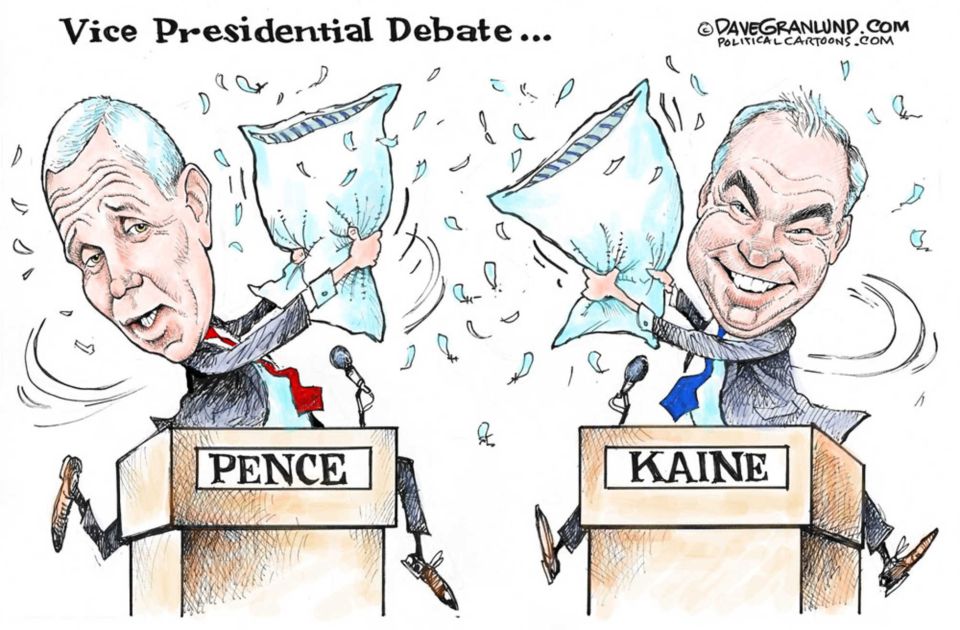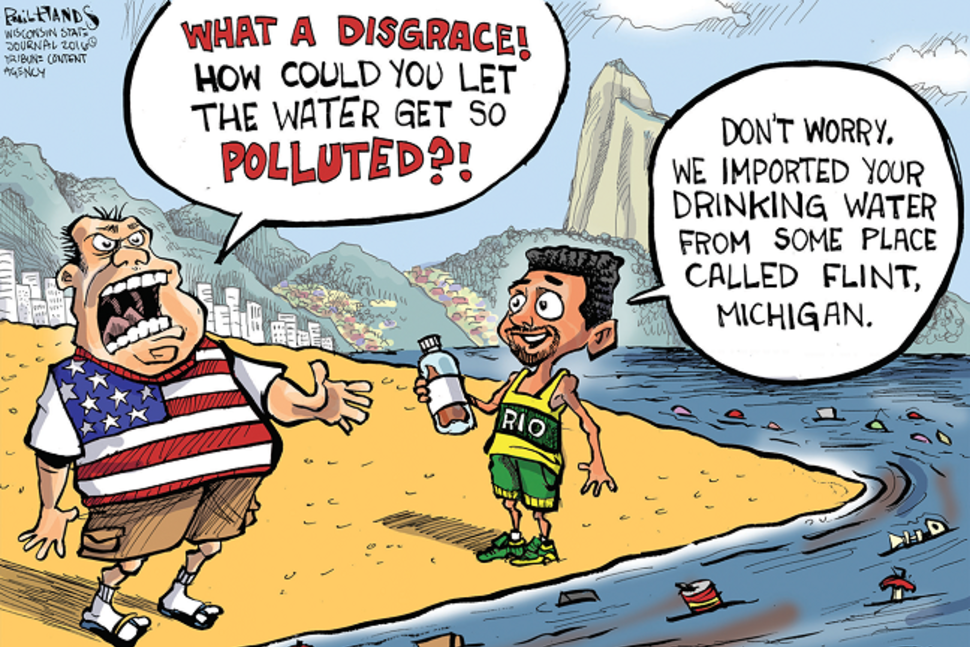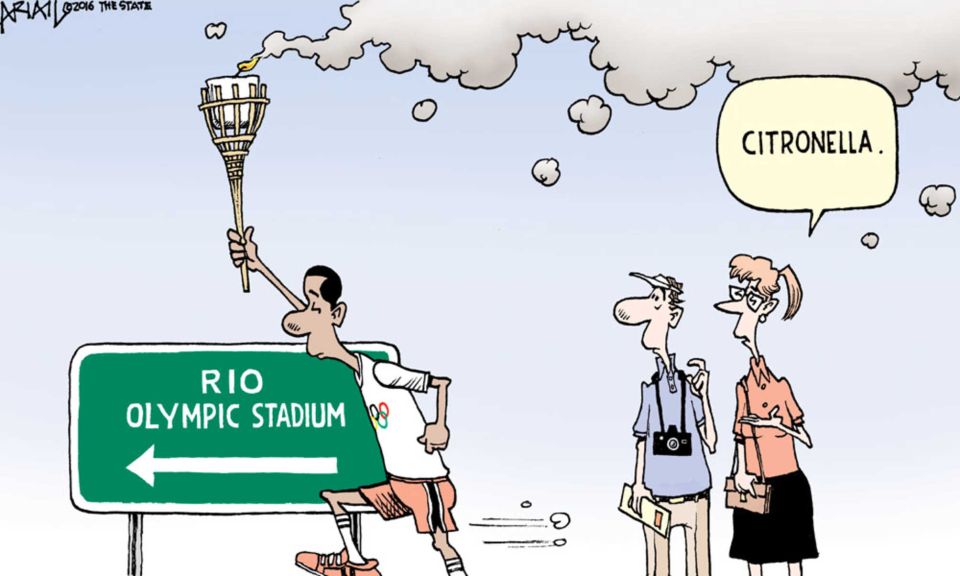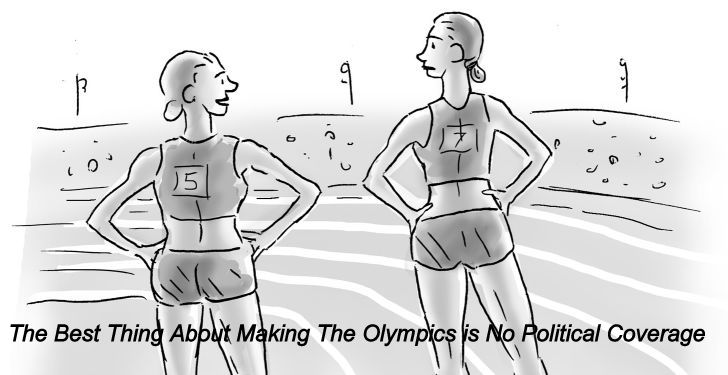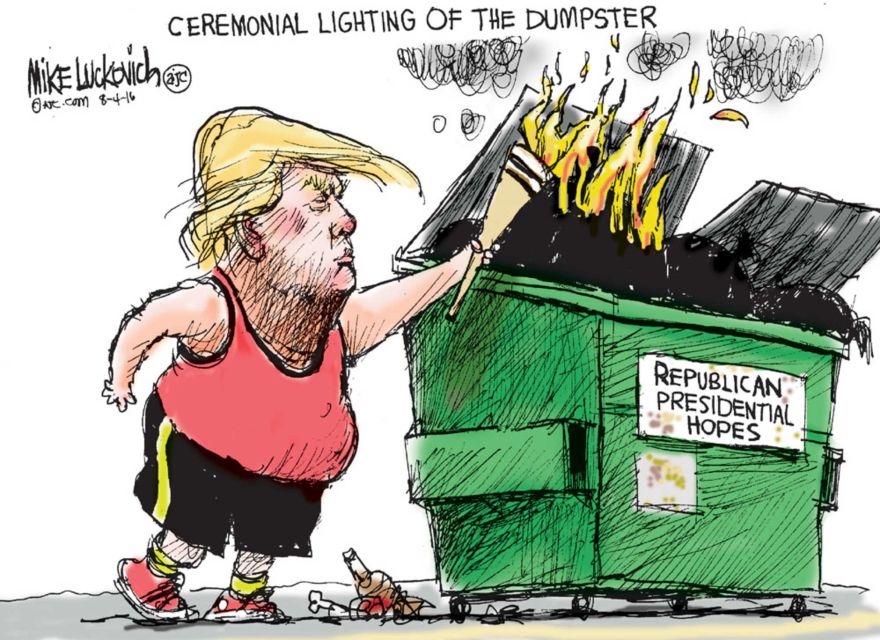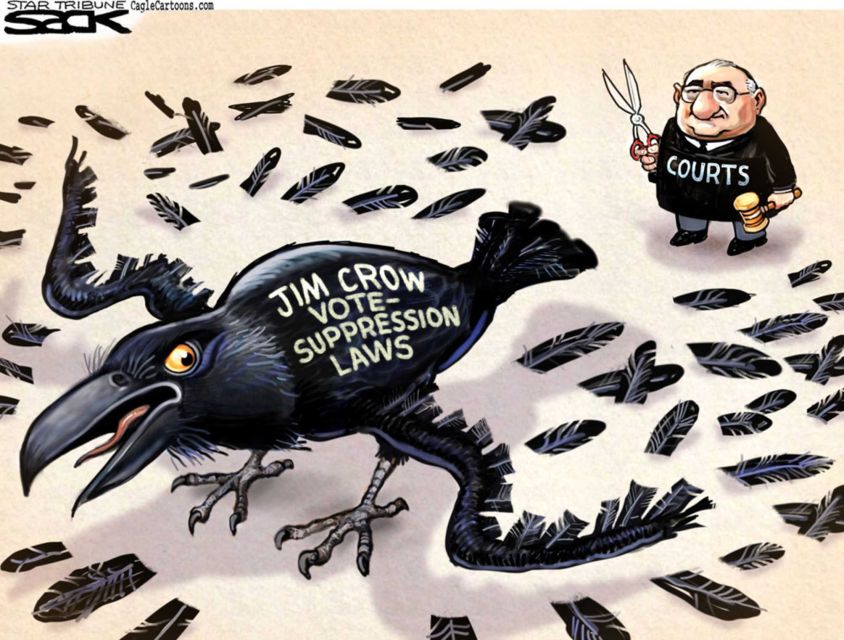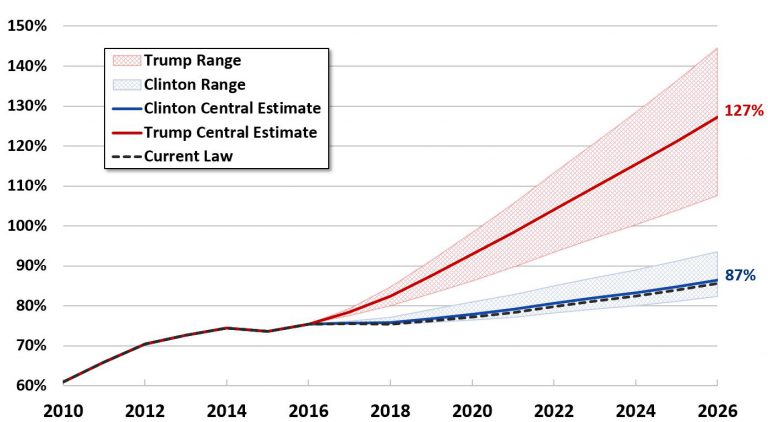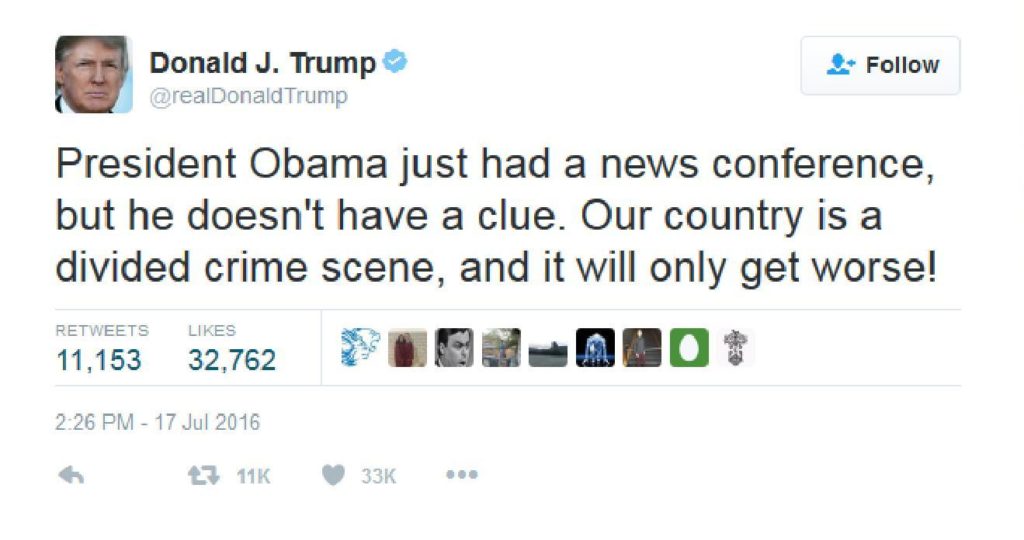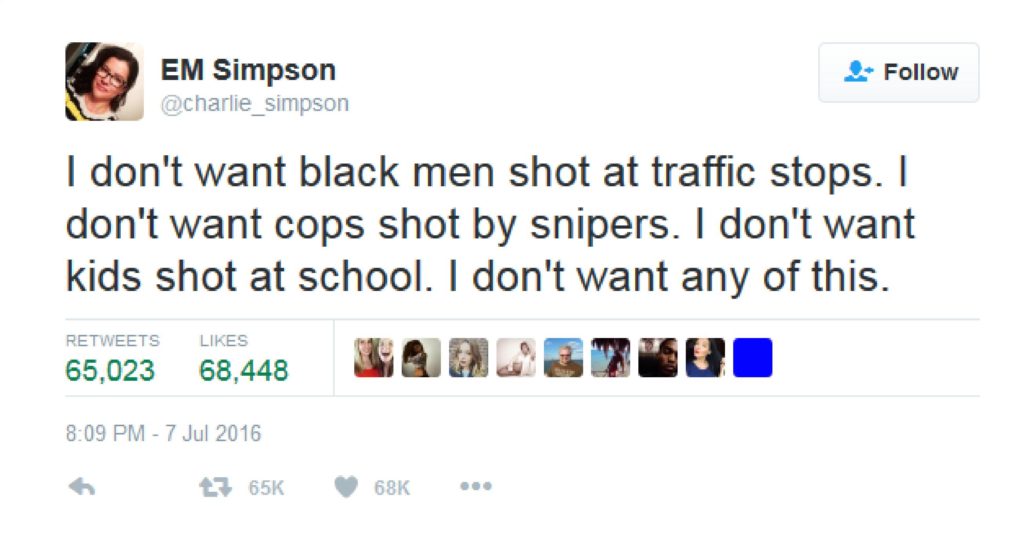Millennials seem to be on the fringe of the political action in 2016. A new survey “The Millennial Economy” by Ernst & Young (E&Y) shows that they are also on the fringe economically, and that they distrust many American institutions.
That may explain why they are disaffected with the current Presidential race. A mid-June survey of 1,200 18-34 year olds was conducted online and via cell phone buy E&Y. It has a margin of error of ± 2.83%. E&Y found that coming of age during an historic economic downturn has severely impacted Millennials:
- 30% of respondents live with their parents, and it’s 40% if they are still single.
- Nearly one-third believe their local community is still in a recession.
Millennial stress levels are high:
- 78% of Millennials are worried about having good-paying job opportunities.
- 74% are worried they won’t be able to pay their healthcare bills if they get sick.
- 79% are worried they will not have enough money to live on when they retire.
Millennials are the most educated generation in US history, but they are not convinced of the cost/benefit of higher education. Instead of education opening doors, many Millennials feel that student debt has boxed them in. The WSJ reported that among college-educated Millennials, 81% had at least one source of long-term debt, while The Atlantic reports that real wages have fallen for Millennials (and only Millennials) in the past five years, even as education costs have skyrocketed.
E&Y surveyed Millennials’ views of the establishment. They find that Millennials have very little confidence in many of our established institutions, but they are patriotic and supportive of a leading role for the US in the world. This chart is from the study:
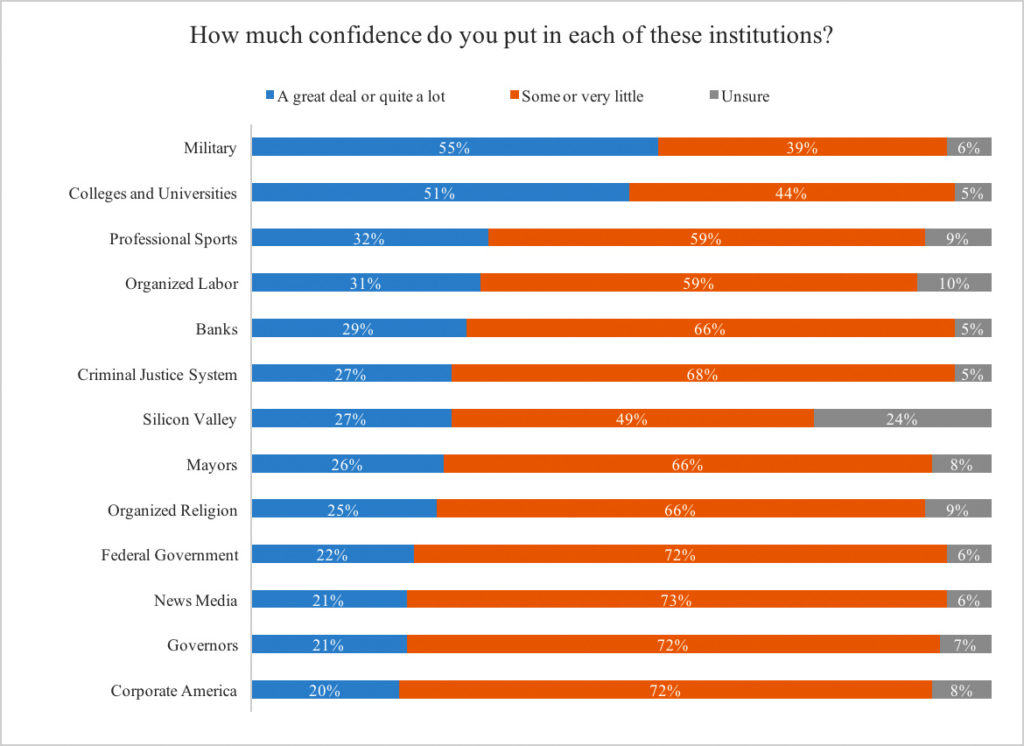
Millennial men have greater confidence in US institutions than women, with 34% of men expressing confidence in the institutions polled compared to only 25% of women. Overall, Millennials:
- Had the least confidence in the News Media (73%) closely followed by the Federal Government, Governors, and Corporate America (72%).
- Had the most confidence in the Military (55%), followed by Colleges and Universities (51%) and Professional Sports (32%).
Millennial men remain more optimistic than Millennial women, although the clear majority of both genders think the country is headed in the wrong direction:
- Men are nearly twice as likely to believe that the country is headed in the right direction (33%) as women (17%).
- Hispanic men and black women are the most optimistic group within each gender, with 41% of the former and 27% of the latter believing the country is headed in the right direction.
So the $64 question is: How to win the vote of Millennials? E&Y says that economic uncertainty greatly influences Millennials’ political priorities. They found that Millennials are looking to politicians to alleviate their financial insecurity:
- 64% of Millennials believe public education should be a top priority for federal tax dollars, a consensus that crosses party lines.
- Social Security and Medicare were their second priority (46%), while National Security was third at 45%.
- 47% of Millennials identify as independents.
Finally, as a crib sheet for debate prep, E&Y have this checklist for Millennial hot-button issues:
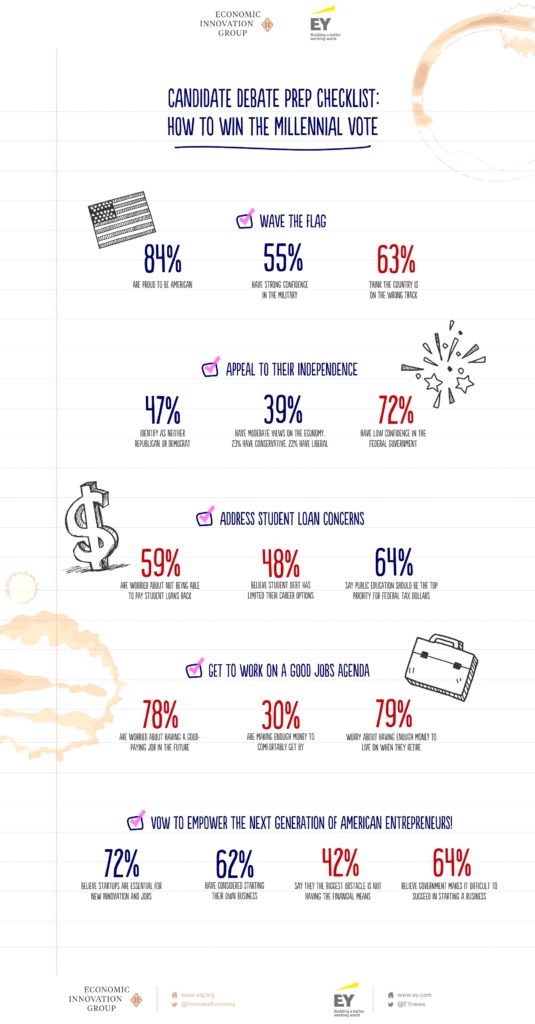
Politicians always play to a checklist. Trump mentioned every battle ground state in the last debate, but fell in the polls. And playing generational politics can result in the candidate seeming completely inauthentic. That has been Hillary Clinton’s problem with Millennials. Al Gore tried it with Social Security in 2000 vs. GW Bush, and it did not work.
Polls show Clinton running far behind where she would hope to be with Millennials. She is winning just under half of Millennial votes, while Obama got over 60% in both of his campaigns.
As we have said, Hillary is not Bernie, and doesn’t stand for what Bernie stood for. So while millennials loved him for it, Hillary will not do as well with them.
Wrongo is concerned about how many young people are considering voting for Gary Johnson. Johnson’s libertarian views are far worse for their interests than anything Hillary stands for.
Johnson certainly would never support the government doing anything with student debt. Yet apparently, many young people will be voting for him, with no apparent concern about how it might help elect Donald Trump.
Perhaps Millennials and the rest of us need to have a busload of faith to get by between here and Election Day in order to survive. Here is Lou Reed live on Letterman in 1989 with “Busload of Faith”:
https://www.youtube.com/watch?v=qNZm89wLaBw
True to Lou, he sang about a busload of faith, minus the bus, and minus the faith.
Those who view the Wrongologist in email can see the video here.
Sample Lyrics:
You can’t depend on your family
you can’t depend on your friends
You can’t depend on a beginning
you can’t depend on an end
You can’t depend on intelligence
ooohhh, you can’t depend on God
You can only depend on one thing
you need a busload of faith to get by

